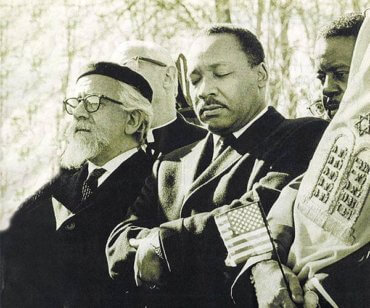
Was Jesus a Rabbi?
Dear Jew in the City,
Was Jesus a rabbi?
Sincerely,
Ben
Thanks for your question, Ben. The answer depends on who you ask.
As you are no doubt aware, Christians and Jews have some very different ideas when it comes to Jesus. Christians consider him the messiah; Jews don’t. Christians consider him to be the son of God. Not only do Jews not consider him that, we don’t even understand what that means because in Judaism, that’s a concept that “does not compute.” So yes, Christians might consider Jesus to be a rabbi, but Jews do not. Let’s examine why that is. (Disclaimer: It should go without saying that Jews don’t believe in the Christian Bible. However, for purposes of this article, I’m out of necessity going to use the biographical sketch presented there.)
First of all, the title rabbi first came into use during the period of the Tannaim, which was the first century CE. Yes, Jesus lived in the first century CE, but he died circa year 33. The title rabbi did not come into use until after the Temple was destroyed in year 70. The earliest Sages were simply called names like Hillel and Shammai. Next came “Rabban” as in “Rabban Gamliel” and “Rabban Yohanan ben Zakkai.” The title “rabbi” really only started in the second generation of Tannaim (like Rabbi Akiva), so nobody in Jesus’ day was a “rabbi.”
“Ah,” I hear you say, “but the Christian Bible refers to Jesus as a rabbi more than a dozen times!” (Okay, you probably didn’t say that. You probably didn’t even know that. But it’s a good question, so I’m going to answer it.)
First of all, the Christian Bible was written decades, if not centuries, after Jesus is said to have lived. It’s not beyond the realm of possibility that the authors simply chose a term that would be meaningful to their audience but that would have been anachronistic in Jesus’ lifetime.
Second, “rabbi” may not yet have been adopted as a title, but it was still a word. Literally, it means “my master,” but its intention is one’s teacher. In fact, such is explicit in the Gospel of John. John 1:38 says, “Turning around, Jesus saw them following and asked, ‘What do you want?’ They said, ‘Rabbi’ (which means “teacher”), ‘where are you staying?’”
So Jesus’ disciples may have referred to him as “Rabbi” because he was their teacher, but that implies nothing to suggest that he had received semicha (what we would call “rabbinic ordination” today.) Fun fact: in the pilot for the television show Brooklyn Nine Nine, Detective Amy Santiago more than once refers to Captain Holt as her “rabbi.” This was dropped when the series was picked up, but the meaning is clear, as throughout the rest of the series, she refers to him as her “mentor.”
For the record, John the Baptist was also referred to as “Rabbi,” in John 3:26.
Here’s another objection: Orthodoxy today is known by some as “Rabbinic Judaism.” This is because we accept the validity of the Oral Law as it has been explained to us by our Sages. Groups that did not accept the Oral Law include the Sadducees, the Karaites and the Samaritans (as in “The Good…”). You know who were the adherents of the Oral Law? The Pharisees. “Rabbinic Judaism” is basically Pharisaic Judaism. And you know who Jesus’ religious opponents were? The Pharisees, i.e., the ones who believed in rabbinic authority. So it makes perfect sense for Jesus’ disciples to refer to him as their teacher, but far less sense for him to co-opt the nomenclature of his opponents. (But since the title had not yet been adopted, this whole line of reasoning is technically pretty moot.)
Still another point: Jesus may have been a teacher, but he was very un-rabbinic. Rabbis base their teachings on the mesorah – the oral tradition that stretches back to Sinai. Every ruling is based on precedent and each rabbi teaches based on what he learned from his teacher. This wasn’t Jesus’ pedagogical style. Rather, he would reject not only the mesorah but the Torah text itself in favor of innovating new laws. For example, in the Sermon on the Mount (Matthew chapter 5), Jesus makes a series of statements beginning with “You have heard it said (i.e., in the Torah)” and continuing with “but I say to you….” In each of these, he takes an overt Torah law and, on his own authority, innovates a new law in its place (for example, prohibiting divorce except in cases of marital infidelity). If you believe he’s the son of God, then that’s ostensibly his prerogative, but it’s not something any rabbi of the Talmud ever did. The mesorah is key to our process and no rabbi has the authority to ignore it, let alone override it.
Along similar lines, in Mark chapter 2, Jesus permitted his disciples to harvest grain on Shabbos, saying that “man is master of the Sabbath.” Again, if you believe he’s the son of God, then that might be a reasonable thing for him to do, but any rabbi who issued such a ruling would have been defrocked.
And yes, the religious authorities of Jesus’ day did question his credentials (Luke chapter 2). Jesus, however, declined to offer on whose authority he made such controversial statements. (Again, from a Christian standpoint, he was being coy about his origins, but from a Jewish standpoint, he simply lacked a mesorah for his teachings.)
So far we’ve discussed this question from the perspective of Christian texts, but are there any Jewish texts that might shine a light on this matter? There’s one Jewish source that might suggest that Jesus was a yeshiva student who was expelled, but as we shall see, that may not in fact be the case. In tractate Sotah 47a, we are told that Yehoshua ben Perachya had a student named Yeshu HaNotzri (ostensibly “Jesus of Nazareth”). On a trip with his students, they stayed at an inn and Yehoshua ben Perachya commented on how beautiful the inn was. Unfortunately, the Aramaic word for an inn is also the word for a female innkeeper. This Yeshu misunderstood his teacher’s meaning and offered a comment on the lady innkeeper’s appearance, as he thought his teacher had done. Rabbi Yehoshua ben Perachya found this highly inappropriate and he expelled the student. When the teacher refused to be reconciled with his former disciple, this Yeshu HaNotzri became a heretic and led people astray.
Now you might think that this refers to Jesus – and disparagingly, at that – but there’s an important piece of information you should know. We discussed previously how there are things in the Talmud that people like to think refer to Jesus because of little coincidences, but they really don’t refer to him because the facts don’t line up. This is another example of that.
You see, the Talmud is explicit about the reason for Yehoshua ben Perachya’s trip: he was returning to Israel after escaping the persecution of King Yannai (Alexander Jannaeus) in Alexandria. This was a historic event that occurred about eighty years before Jesus was born. Jesus couldn’t be the “Yeshu HaNotzri” referred to in the story because he and Yehoshua ben Perachya simply weren’t contemporaries.
“But ‘Yeshu HaNotzri’ is too specific to be a coincidence!” you object. Not really. Lots of people have the same or similar names. There were two Rabbeinu Bachyas, three Raavads, four Rabbeinu Yonahs… there were even multiple Hillels and Rabban Gamliels! I myself have worked with no fewer than three rabbis who had famous namesakes. So it’s not so farfetched that Nazareth might have produced two residents named “Yeshu” a century apart. (And that’s assuming that Jesus’ even name was even Yeshu! Honestly, I think people just assume that because they think this piece of gemara refers to him.)
I don’t think the current assumption that Jesus was a rabbi comes from dozen or so times that the Christian Bible refers to him as such. (There are 7,957 verses in the Christian Bible, and this handful of references are not particularly well-known.) Rather, I believe the idea was popularized by the book Rabbi Jesus, a somewhat provocative biography written by Bruce Chilton and originally published in 2000. When I was a kid in the 19XXs, referring to Jesus as a rabbi would have gotten you an awkward glance, but the idea gained legs, so here we are.
Bottom line, Jesus wasn’t a rabbi as we use the term today, i.e., ordained Jewish clergy. But, like Brooklyn Nine Nine’s Captain Holt, he may have been one colloquially insofar as he was a teacher. As per John 1:38, that would have been the intention of the word when used in those pre-rabbi days.
Sincerely,
Rabbi Jack Abramowitz
JITC Educational Correspondent
Follow Ask Rabbi Jack on YouTube
If you found this content meaningful and want to help further our mission through our Keter, Makom, and Tikun branches, please consider becoming a Change Maker today.








3 comments
Sort by
I don’t think any Christian thinks Jesus was a rabbi in the technical meaning of “member of the ordained clergy.” For starters, that means he would have had to have spent a few years studying in a school or with some other rabbi. It kind of seems like the Gospels would not have forgotten to mention that little detail! And Jesus absolutely taught solely on his own authority. That’s kind of what got him crucified. You (Rabbi Jack) have mentioned in several articles certain things in the Torah that God permits but does not approve of and hedges with guardrails (polygamy, slavery) with the idea that eventually people will be able to move beyond these things. Jesus never disparages Mosaic law — he simply argues that was permitted in the past (“for the hardness of your hearts Moses allowed divorce”) is now elevated to a higher level. And he certain criticized the Pharisees for “piling on” restrictions and requirements not found in the Torah. That is the origin of his statement “the Sabbath was made for man, and not man for the Sabbath” — that is, the Pharisees have made the Sabbath a burden, even to the point of requiring someone to go hungry rather than obtain grain from a field while on a trip. The Gospels completely recognize that not even a prophet would have the authority to say these things. This is why there can be no “half way” view of Jesus in which he is “a great teacher” (or, in the Muslim view, a prophet) but not, in fact “the Word made flesh.”
I’d to point out that the very existence of Jesus is questionable. According to the account with Yehoshua ben Perachiya, this was a Tanna that lived several generations before Hillel. That would put him to around the time of the Chashmonaim, not 30CE.
It’s very likely that the writers of the new testament deliberately created this timeline just to link his crucifixion closer to the חורבן בית שני.
It would follow that the writers lived 100 years or more after this Yeshu, making all the stories in n.t. even more implausible.
But in order for the church founders to maintain their narrative, they need to threaten non-believers with eternal punishment. It’s an iron-clad business that keeps its members in total control…
as long as they make sure not to question what they’re taught
Generally this article was fair enough and well informed. With one glaring exception : no serious scholar of any religious or non- religious bent believes any of the the New Testament books were written “centuries” after Jesus’ death. Even Bart Ehrman doesn’t believe that . I think the latest the scholarship goes for any book is around 100 CE